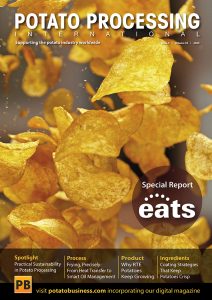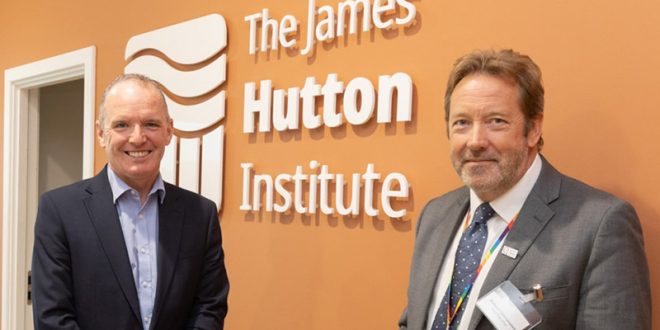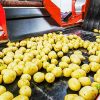Oxford Project Targets Potato Yield Gains with GBP6.7m Chloroplast Engineering Breakthrough

Researchers at the University of Oxford, in partnership with Wild Bioscience Ltd, have launched a £6.7 million initiative aimed at improving crop yields and resilience, with an initial focus on potatoes. Funded by the UK’s Advanced Research and Invention Agency (ARIA), the project seeks to harness naturally occurring genetic diversity to enhance productivity and sustainability in key crops, starting with potatoes and later expanding to wheat.
The project, officially named Oxford Plastid Transformation for an Improved Sustainable Economy, is pioneering the development of synthetic chloroplast genomes—a previously untapped region of plant DNA responsible for photosynthesis and nutrient efficiency. By redesigning this genome, scientists aim to create potato plants that require fewer resources and can thrive under increasingly harsh conditions, including drought and heat stress.
“This project will deliver plants that align with multiple international definitions on precision-bred organisms,” said Professor Steve Kelly of Oxford’s Department of Biology, one of the project leads. “The ‘designer’ aspect of these crops harnesses the enormous genetic potential in the wider crop gene pool. This means that the changes we are making are already tried and tested by nature.”
Unlike traditional genetic modification techniques, the team is applying a regulation-friendly approach that could make resulting varieties more acceptable to both policymakers and farmers. The precision-breeding method leverages naturally occurring genetic variants and does not introduce foreign DNA, which may smooth the path for market adoption across multiple jurisdictions, including within the EU’s evolving regulatory framework on new genomic techniques.
Professor Francesco Licausi, also from the Department of Biology, emphasized the broader scientific ambition: “This is a fantastic opportunity to showcase how DNA design leverages natural plant evolution to guide crop improvement in the context of climate change.”
The chloroplast genome, long overlooked in conventional breeding strategies due to its complexity, is now accessible thanks to advances in DNA assembly. Professor Chris O’Callaghan of the Nuffield Department of Medicine explained: “Previous research in my lab on DNA assembly now makes it possible to generate a complete chloroplast genome in vitro. This allows us to build new genomes that include multiple genetic variants that have already arisen in nature and that convey beneficial properties.”
The Oxford team’s work could have significant implications for the potato industry, which faces mounting pressure to improve productivity under constrained environmental conditions. Potatoes are particularly sensitive to heat and drought, and improvements in photosynthetic efficiency and nutrient use via chloroplast engineering may offer a new path to stable yields.
Dr Ross Hendron, CEO of Wild Bioscience Ltd, highlighted the commercial potential: “Wild Bio’s sophisticated crop development platform will help supercharge this project to advance discoveries from the lab into crops in the field.”
The research consortium aims to roll out the new chloroplast-enhanced potato varieties in the near term, before expanding the technology to wheat and other globally important crops.

















